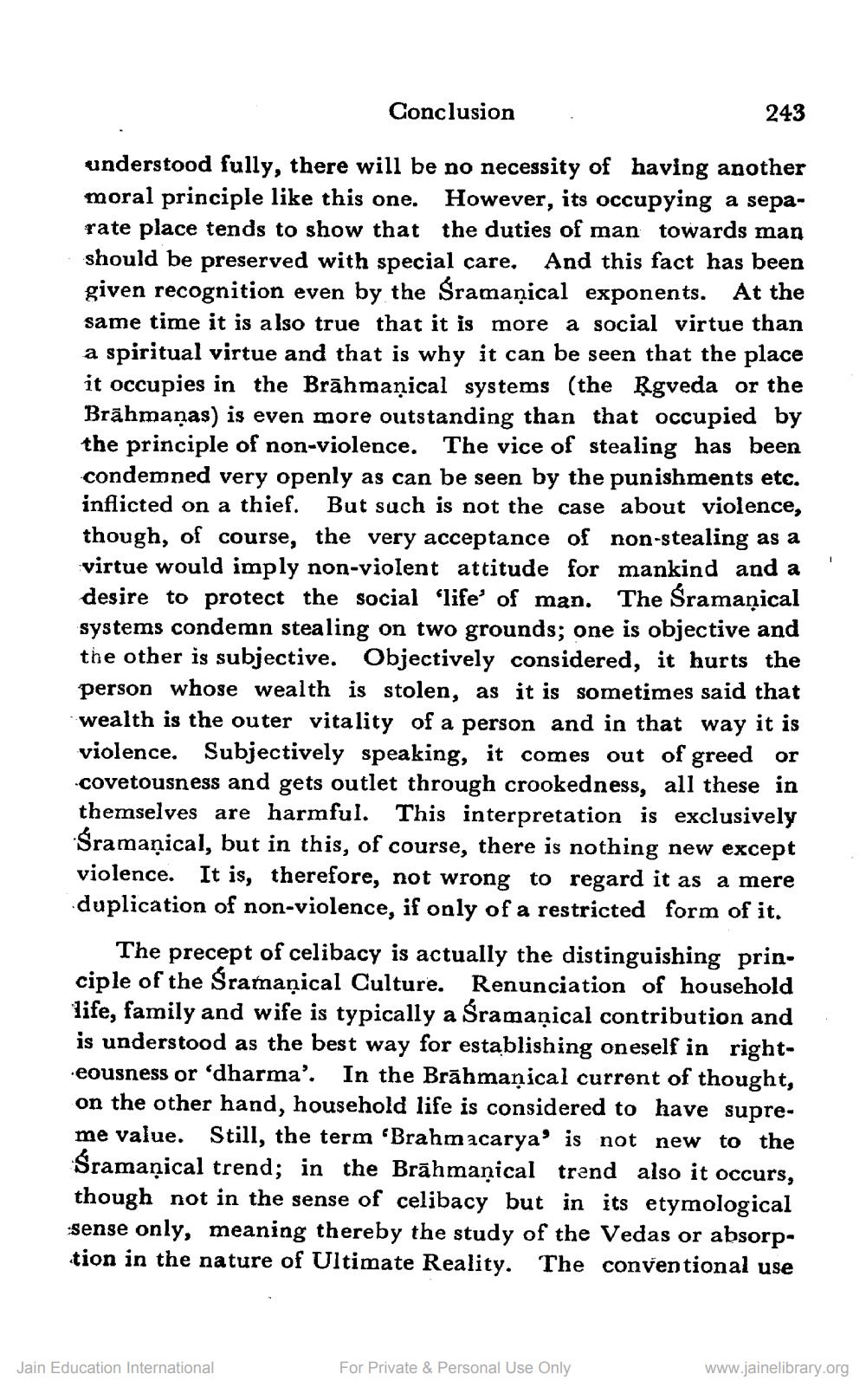________________
Conclusion
understood fully, there will be no necessity of having another moral principle like this one. However, its occupying a separate place tends to show that the duties of man towards man should be preserved with special care. And this fact has been given recognition even by the Śramaņical exponents. At the same time it is also true that it is more a social virtue than a spiritual virtue and that is why it can be seen that the place it occupies in the Brāhmaṇical systems (the Ṛgveda or the Brāhmaṇas) is even more outstanding than that occupied by the principle of non-violence. The vice of stealing has been condemned very openly as can be seen by the punishments etc. inflicted on a thief. But such is not the case about violence, though, of course, the very acceptance of non-stealing as a virtue would imply non-violent attitude for mankind and a desire to protect the social 'life' of man. The Śramanical systems condemn stealing on two grounds; one is objective and the other is subjective. Objectively considered, it hurts the person whose wealth is stolen, as it is sometimes said that wealth is the outer vitality of a person and in that way it is violence. Subjectively speaking, it comes out of greed or covetousness and gets outlet through crookedness, all these in themselves are harmful. This interpretation is exclusively Śramanical, but in this, of course, there is nothing new except violence. It is, therefore, not wrong to regard it as a mere duplication of non-violence, if only of a restricted form of it.
The precept of celibacy is actually the distinguishing principle of the Śramaņical Culture. Renunciation of household life, family and wife is typically a Śramanical contribution and is understood as the best way for establishing oneself in right.eousness or 'dharma'. In the Brāhmaṇical current of thought, on the other hand, household life is considered to have supreme value. Still, the term 'Brahmacarya' is not new to the Śramaṇical trend; in the Brāhmaṇical trend also it occurs, though not in the sense of celibacy but in its etymological sense only, meaning thereby the study of the Vedas or absorption in the nature of Ultimate Reality. The conventional use
Jain Education International
243
For Private & Personal Use Only
1
www.jainelibrary.org




